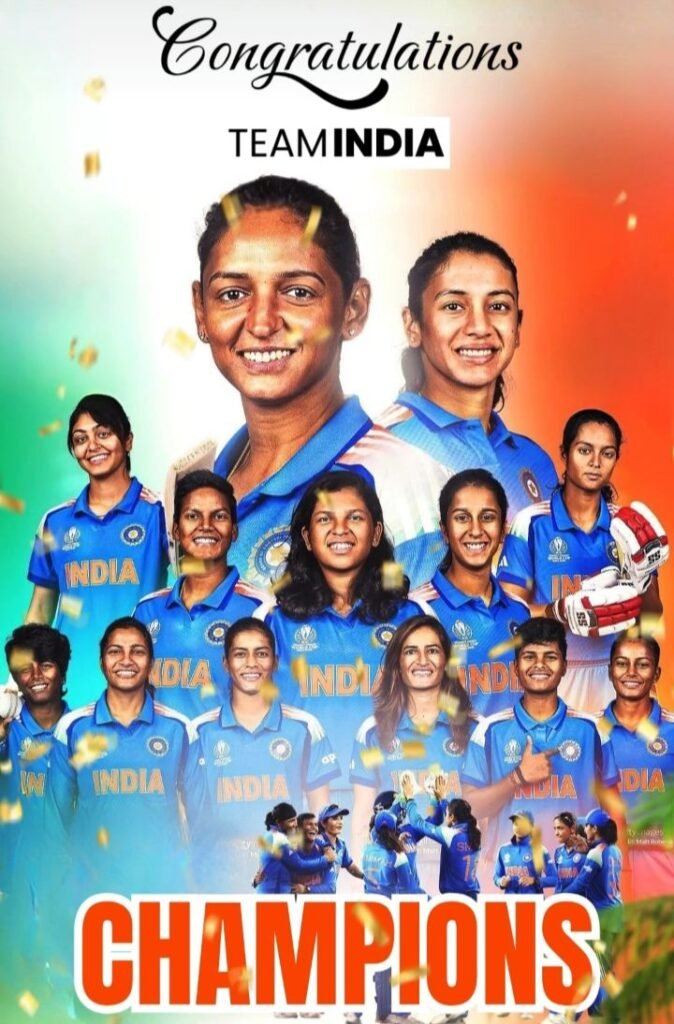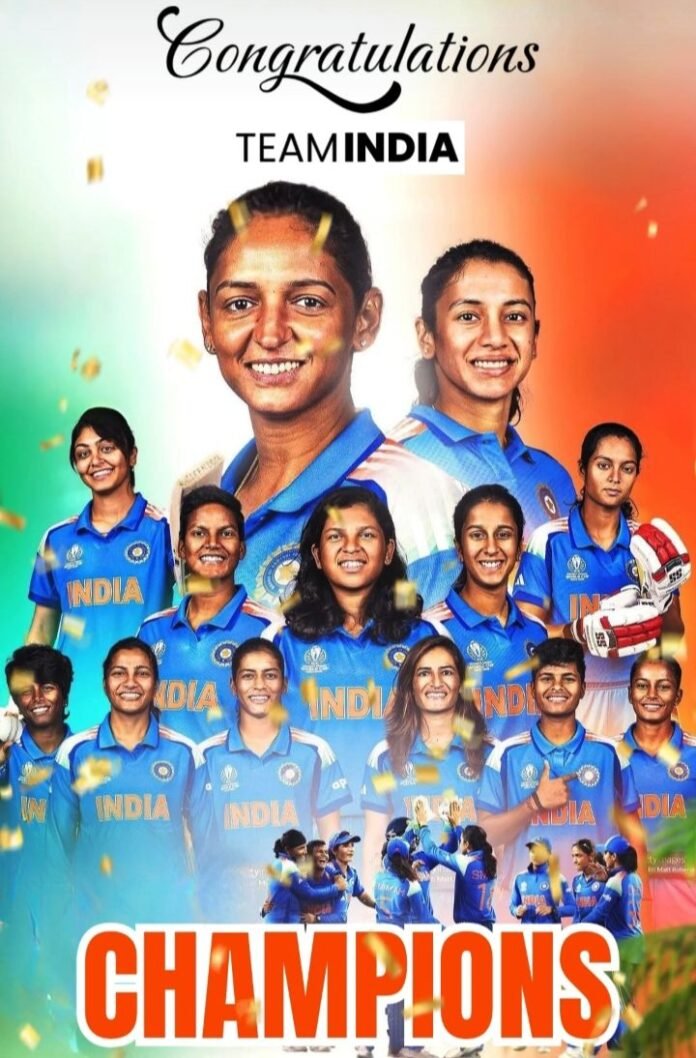Saptrishi Soni
On November 2, 2025, the Dr. DY Patil Stadium in Navi Mumbai witnessed a moment that will be remembered forever in Indian sporting history. The Indian women’s cricket team, after years of heartbreak and near-misses, finally lifted their maiden ICC Women’s World Cup trophy by defeating South Africa by 52 runs. The victory marked not just a sporting milestone but also a symbol of transformation in Indian women’s cricket—a story of perseverance, belief, and unity.
The journey to this historic win was anything but smooth. India’s campaign began with back-to-back defeats in the group stages, including one to South Africa, which left the team struggling at the edge of elimination. Critics questioned the captain’s strategy, the team’s mindset, and even their ability to handle pressure. But according to captain Harmanpreet Kaur, it was after that painful defeat that the team’s real campaign began. She later said, “Our World Cup began that night. We looked at ourselves, not the scoreboard, and decided that we were not done yet.”
India’s comeback in the tournament was a testament to that newfound belief. The semi-final against Australia, seven-time world champions, became one of the most iconic matches in women’s cricket history. Chasing a daunting target of 339, India stunned the cricketing world by pulling off the highest successful chase in women’s ODI history. Jemimah Rodrigues, with an unbeaten 127, and Harmanpreet Kaur, with 89, anchored a 167-run partnership that turned the tide in India’s favor. The crowd roared as the Women in Blue crossed the finish line, sealing their place in the final and signaling to the world that a new chapter had begun.
In the final against South Africa, India won the toss and chose to bat first. The young opener Shafali Verma gave the hosts a blistering start with her 87-run innings, displaying the fearless intent that has become her hallmark. Deepti Sharma, ever reliable in pressure moments, added 58 runs and later produced a match-winning spell with the ball. India posted a strong total of 298/7 on the board. South Africa began their chase confidently but were soon derailed by Deepti’s precision bowling, which fetched her five crucial wickets. South Africa were bowled out for 246, and India claimed a 52-run victory that set off celebrations across the nation.
For the players, this wasn’t just about winning a trophy—it was about rewriting history. Deepti Sharma finished as the tournament’s highest wicket-taker, while Shafali Verma’s explosive batting throughout the World Cup made her one of the most feared openers in the world. The leadership of Harmanpreet Kaur, calm and unwavering even in crisis, held the team together and inspired a generation of young athletes watching across India.
This victory also carries a much deeper significance for Indian cricket. Just two years ago, the Board of Control for Cricket in India (BCCI) introduced pay parity between men’s and women’s cricketers—a landmark step that was widely debated. Today, that policy looks visionary. The women’s team’s success stands as living proof that when given equal support, opportunity, and investment, women athletes can achieve the extraordinary.
The turning points of this campaign were many: the comeback after early losses, the record-breaking semi-final chase, the team’s unity in adversity, and the passionate crowd support that turned every match into a festival. But above all, it was belief—the unshakeable faith that no target was too high, no opponent too strong—that propelled this team to glory.
The ripple effects of this triumph are already being felt. Sponsors are lining up, the media spotlight has grown brighter, and young girls across India are picking up cricket bats with new dreams in their eyes. The image of Shafali Verma raising her bat, Deepti Sharma clutching the ball, and Harmanpreet Kaur lifting the World Cup trophy will now inspire generations to come.
November 2, 2025, will forever remain etched in India’s sporting history—not just as the day the women in blue conquered the world, but as the day Indian cricket changed forever. This victory was more than just about runs and wickets; it was about courage, equality, and destiny. The women’s team didn’t just lift the World Cup—they lifted the nation’s spirit, proving once again that when India dreams together, history follows.






